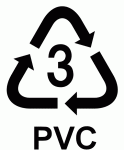 A study released today, co-authored by environmental medicine expert Dr. Sheela Sathyanarayana of the Seattle Children’s Research Institute Center for Child Health, Behavior and Development, reports male infants whose mothers were exposed to chemicals called phthalates during pregnancy may have a greater risk of future infertility and other reproductive health issues.
A study released today, co-authored by environmental medicine expert Dr. Sheela Sathyanarayana of the Seattle Children’s Research Institute Center for Child Health, Behavior and Development, reports male infants whose mothers were exposed to chemicals called phthalates during pregnancy may have a greater risk of future infertility and other reproductive health issues.
The study, published in the journal Human Reproduction, included over 700 infants and demonstrated that even at low levels, environmental exposure to these common chemicals can adversely affect male genital development, which in turn may impact male reproductive health later in life.
Specifically, researchers found that male children of mothers who were exposed to a phthalate, DEHP, during the first trimester of pregnancy were born with a significantly shorter anogenital distance (AGD), the distance between the genitals and the anus. Shorter AGD in males has previously been linked to infertility and low sperm count. No changes were seen in girls, which is consistent with other studies. This is the largest study to-date on the association between phthalates and AGD.
“This study helps expecting mothers better understand what chemicals in our environment may impact the health of their sons later in life,” Sathyanarayana said. “Phthalates are all around us and it’s important that parents are armed with this information so they can take appropriate steps to reduce their exposure.”
What are phthalates?
Phthalates are man-made chemicals used to soften and increase the flexibility of plastic and vinyl products. The most common products containing these chemicals include: medical tubing, food storage containers, flooring, wallpaper, shampoo, lotion makeup and perfume. Phthalates can affect hormones such as estrogen and testosterone and can potentially interfere with normal growth and brain development.
Reducing your family’s exposure:
Sathyanarayana shares some tips families can follow to reduce their phthalate exposure:
- Buy low-fat dairy products such as skim milk and low fat cheeses. Avoid high fat foods such as cream, whole milk and fatty meats.
- Buy fresh or frozen fruits and vegetables. Avoid canned and processed foods.
- Minimize personal care product use, which can contain high levels of phthalates.
- Use glass, stainless steel, ceramic or wood to hold and store foods instead of plastics.
- Do not microwave foods/beverages in plastic.
- Encourage frequent hand washing to remove chemicals from children’s hands.
- Take shoes off at home to avoid tracking in dust that may contain these chemicals.
- Keep carpets/windowsills clean. Vacuum and wet dust frequently to minimize dust that may contain these chemicals.
If plastics cannot be avoided, try to ensure that you are not using plastics with the following symbol.

Resources:
- CDC Factsheet: Phthalates
- On The Pulse: Babies Likely Consuming Unsafe Levels of Phthalates
- PEHSU Phthalate Resource

